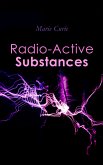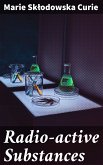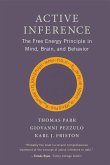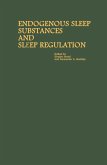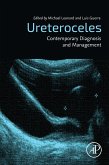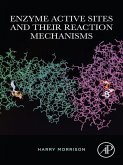In "Radio-Active Substances," Marie Curie delves into the groundbreaking research surrounding radioactivity, a term she famously coined. The book presents a methodical exploration of the properties and behavior of radioactive elements, enhanced by Curie's meticulous scientific observations and experiments. Her writing is characterized by clarity and precision, embodying a blend of personal narrative and rigorous scientific inquiry. Within the broader context of early 20th-century science, Curie's work represents a pivotal moment in the understanding of atomic theory and its implications for both medicine and physics, making profound contributions to the nascent field of radiology. Marie Curie, the first woman to win a Nobel Prize and the only person to win in two different scientific fields (Physics and Chemistry), was driven by an insatiable curiosity and a commitment to scientific discovery. Her pioneering work on radioactivity stemmed from a desire to comprehend the nature of matter and its potential applications for humanity. Her experiences navigating the male-dominated scientific community of her time have fueled her resolve to elevate the role of female scientists and contribute significantly to societal progress. I highly recommend "Radio-Active Substances" not only to those interested in the history of science but also to readers who appreciate the intricate dance between determination and discovery. Curie's profound insights continue to resonate, urging modern scientists and inquisitive minds alike to explore the mysteries of the universe with both rigor and passion.
Dieser Download kann aus rechtlichen Gründen nur mit Rechnungsadresse in A, B, BG, CY, CZ, D, DK, EW, E, FIN, F, GR, H, IRL, I, LT, L, LR, M, NL, PL, P, R, S, SLO, SK ausgeliefert werden.



